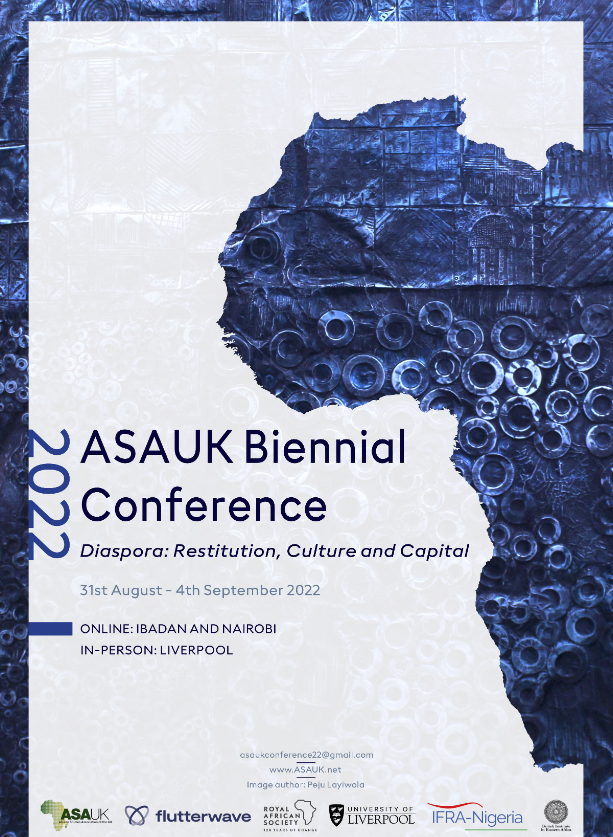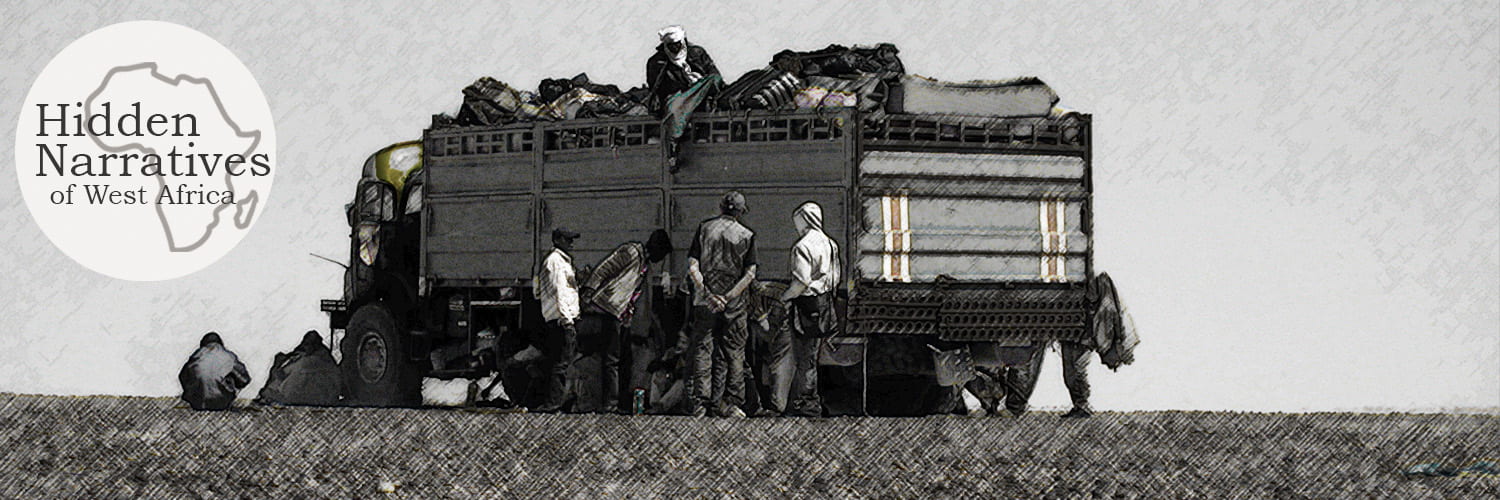‘Contesting the criminalisation of mobility and livelihoods in West Africa and in the diaspora’
Join us this Saturday 03 September from 14:15 (UK) at the ASA UK conference.
Stream 4 – Panel 4 at 14:15-15:45 (UK): Contesting the criminalisation of mobility and livelihoods in West Africa and in the diaspora. Panel Convenors: Chairs: Dr Gernot Klantschnig and Dr Lala Ireland
This panel will explore the criminalisation of mobility and related livelihoods in West Africa and in the diaspora. The contributions will contest dominant approaches that label these livelihoods and related activities as crime or organised crime. While much of our current understanding about these quasilegal livelihoods and activities in West Africa relies on depictions from the outside, especially western-derived concepts, such as human trafficking or organised crime, and poor empirical data, the panel will highlight
local narratives to better understand what these activities mean in West Africa, what has caused their emergence and significance as a policy issue. Based in in-depth research, the panel asks three overarching questions: What are the local narratives on criminalised livelihoods and mobility? How important are notions of legality and legitimacy in these depictions? And how useful are our conceptual tools for understanding these activities in the regional context? The panel seeks to uncover and contest processes of criminalization by looking at restrictions on people’s mobility and migration in West Africa and
the diaspora.

Presentation 1
Quasilegality and migrant smuggling in northern Niger – Philippe Frowd, University of Ottawa, Dr Elodie Apard, French Institute for Research in Africa & Dr Ini Dele-Adedeji
This paper draws on the case of irregular migration in Niger to argue that, once we consider the voices of market insiders in the smuggling economy as well as those in the security and intervention sector, these narratives point to the fundamentally ambiguous status of the migration economy between the licit
and illicit, the legal and the illegal. To capture this ambiguity, the paper draws on the concept of ‘quasilegality’, which captures the in-between status of the flows in question, and in particular the conceptual space between the licit/illicit and legal/illegal binaries. The term quasilegality helps to highlight the gap between social sanction and legal frameworks, point to ambiguities
within the state’s legal framework itself, and place greater emphasis on insiders’ self-understandings.
Presentation 2
The feedback loop: producing Nigerian organized crime: European police, global
medias and Nigerian stakeholders – Corentin Cohen – University of Oxford
This article analyses the discourses regarding Nigerian confraternities’ expansion to Europe to discuss how a network of individuals working together for solidarity and political objectives becomes categorised as an organised crime group or a mafia organisation. I use justice investigations, interviews
with members, judges, police officers, and journalists to show how the work of French and Italian institutions led to the emergence and transformation of discourses regarding the “Nigerian mafia”. I argue that this process needs to be accounted for the sociology of information production and practices,
which explain effects of circular reporting, diffusion of police frames and narratives.
Presentation 3
Researching human trafficking in Edo state, Nigeria: perspectives of local actors on “organized crime” – Precious Diagboya – University of Ibadan
As an escape route from the dominant challenges/obstacles to the enjoyment of a good life in Benin city, a lot of young girls and women have become vulnerable to human trafficking. This article aims to further understanding on the ethical and conceptual challenges associated with researching mobility and
human trafficking in Benin city. It presents the perceptions of human trafficking and organized crime among local actors. Based on a four years’ research, this paper concludes that local perceptions of organized crime can hinder quality data collection and policy making.
Presentation 4
Rule of Law Approaches to Countering Transnational Organized Crime in Africa: Going Beyond Criminal Justice – Catherine Lena Kelly, Africa Center for Strategic Studies, National Defense University
African state responses to “transnational organized crime” (TOC) are criticized for being overly military, law enforcement, and criminal justice oriented with limited appreciation of the cultural aspect of activities labelled as organised crime. This paper explores the benefits and the significant limits, of such approaches. While using criminal law to deter TOC can shift policy focus away from military solutions that might otherwise prevail by default, TOC is actually enabled by development and governance factors that go beyond criminal justice alone: the availability of alternative livelihoods, the popular legitimacy of the state and its laws, and whether there is a balance of powers enabling oversight of certain state officials facilitating TOC. Synthesizing recent insights from empirical research on African TOC, including original material from executive-level exchanges, this paper argues that a more holistic and people-centered approach – one that conceives of rule of law as more than law enforcement, and instead as a dynamic social and political practice – is needed.
You may also be interested in our project’s latest publications on the topic: click here.
For more information about the ASA UK conference : click here



